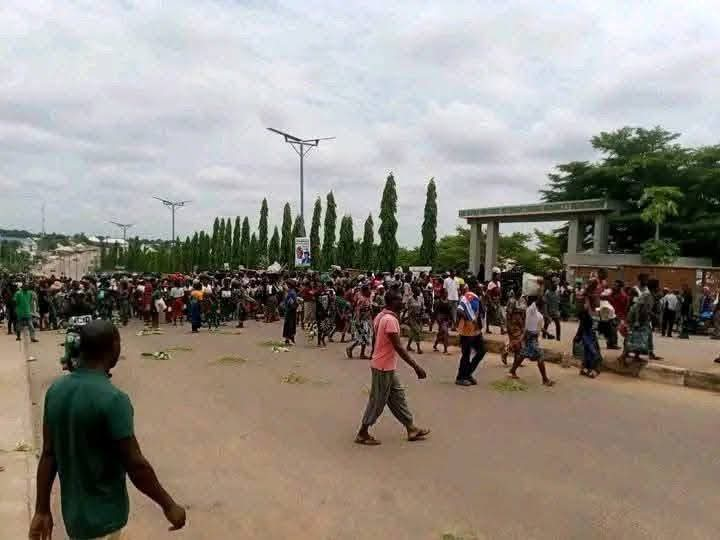The Agagbe Internally Displaced Persons (IDP) camps in Gwer West Local Government Area of Benue State are grappling with a surge in snakebite incidents, posing a significant health risk to the already vulnerable population. Since January, at least twelve individuals residing in these camps have fallen victim to snakebites, the latest being a 14-year-old boy named Chagu Terhemen. This concerning trend highlights the precarious living conditions and limited access to healthcare faced by the displaced community. Terhemen, who was bitten while accompanying his father to their farm, is currently receiving traditional treatment, as immediate medical assistance is unavailable. The incident underscores the urgency of addressing the healthcare needs of the IDPs and implementing preventative measures to mitigate the risk of snakebites.
The living conditions within the Agagbe IDP camps further exacerbate the vulnerability of the displaced population. Overcrowding is rampant, forcing many registered IDPs to seek shelter within the host community, potentially exposing them to greater risks, including encounters with venomous snakes. Five primary locations serve as IDP camps in Agagbe: RCM Primary School, Sisters Convent, Saint Francis Secondary School, the old police station, and Adzequa store. All of these sites are reportedly congested, creating an environment conducive to the spread of diseases and increasing the likelihood of accidents, including snakebites. The lack of adequate space and resources within the designated camps underscores the need for improved infrastructure and living conditions to ensure the safety and well-being of the displaced individuals.
The case of Chagu Terhemen highlights the challenges faced by IDPs in accessing prompt and appropriate medical care. Although a Memorandum of Understanding exists between the State Emergency Management Agency (SEMA) and the State University Teaching Hospital in Makurdi, facilitating treatment for registered IDPs, Terhemen’s family has reportedly faced obstacles in securing medical assistance for him. Allegations have surfaced accusing the SEMA camp manager of neglecting snakebite victims, particularly those residing outside the congested camps. These claims raise concerns about the implementation of the existing MOU and the commitment to providing adequate healthcare to all registered IDPs, regardless of their living arrangements.
The recurring snakebite incidents within the Agagbe IDP camps necessitate a multi-pronged approach to address both the immediate health crisis and the underlying factors contributing to the problem. Immediate interventions should focus on ensuring access to antivenom treatment and medical care for all snakebite victims, regardless of their location. Collaboration between SEMA, healthcare providers, and local communities is crucial to streamline the referral process and ensure timely access to life-saving treatment. Furthermore, raising awareness about snakebite prevention and first aid measures within the IDP camps and surrounding communities can empower individuals to take proactive steps to protect themselves.
Long-term solutions require addressing the inadequate living conditions within the IDP camps. Decongesting the existing camps and providing adequate shelter, sanitation, and hygiene facilities can significantly reduce the risks faced by the displaced population. Investing in community-based healthcare services and training local healthcare workers can enhance the capacity to respond to medical emergencies, including snakebites. Furthermore, collaborating with environmental health experts to identify and mitigate snake habitats within and around the camps can further reduce the risk of encounters with venomous snakes.
The situation in the Agagbe IDP camps underscores the need for a comprehensive and coordinated response to address the multifaceted challenges faced by the displaced community. Providing access to healthcare, improving living conditions, and empowering individuals with knowledge and resources are crucial steps towards safeguarding the health and well-being of the IDPs and mitigating the ongoing threat of snakebites. Sustained efforts from government agencies, humanitarian organizations, and local communities are essential to ensure that vulnerable populations like the IDPs in Agagbe receive the necessary support and protection to rebuild their lives.














